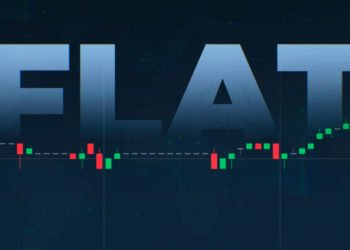The Ghana Stock Exchange (GSE) faced a challenging second trading day of the week, experiencing a significant downturn in both the volume and value of shares traded.
The data from Tuesday’s trading session reveals a substantial 77% decrease in the total volume of shares traded compared to the previous trading day, with a corresponding 71% decline in turnover.
At the close of the session, a mere 42,507 shares were traded, amounting to a market value of GHS 64,601.04. This decline raises concerns about the health of the local bourse, highlighting potential challenges and implications for investors and the broader financial market.
The current market capitalization of the Ghana Stock Exchange stands at GHS 73.8 billion, indicating the overall value of listed companies. The decline in trading activity may have a ripple effect on this market capitalization, influencing investor sentiment and confidence in the exchange.
A closer look at the individual equities reveals that 19 GSE listed companies participated in trading. Notably, there were no gainers nor losers, suggesting a relatively stable but subdued market environment.
Among the actively traded stocks, MTN Ghana led with the highest volume of 11,001 shares, followed by Clydestone Ghana (7,207), SIC Insurance Company (5,000), and GCB Bank (4,670).
Several factors could contribute to this decline in trading activity. External economic conditions, global market trends, or even domestic factors such as regulatory changes or company-specific developments may have influenced investor behavior.
Analyzing these factors is crucial for understanding the implications and potential future trends in the Ghanaian stock market.
Investors and market participants should closely monitor how the Ghana Stock Exchange responds to this decline. Stakeholders may adjust their investment strategies and risk management approaches in response to the changing dynamics of the market.
Additionally, regulatory bodies and market authorities may consider interventions or policy adjustments to address any underlying issues and promote market stability.
The Performance of Market Indices
The performance of the Ghana Stock Exchange (GSE) market indices provides insights into the current state of the stock market. The benchmark GSE Composite Index (GSE-CI) showed stability, closing unchanged at 3,130.60 points. Despite a 1-week loss of 0.58% and a 4-week loss of 2.03%, the overall year-to-date gain of 28.1% suggests a positive trend over the longer term.
On the other hand, the GSE Financial Stocks Index (GSE-FSI) maintained its value at 1,918.99 points. However, it recorded a 1-week loss of 1.95%, a 4-week loss of 6.03%, and a year-to-date loss of 6.51%. This indicates a relatively challenging period for financial stocks in the short and medium term.
The stable performance of the GSE-CI, despite short-term losses, suggests underlying strength and potential for recovery. Conversely, the decline in the GSE-FSI raises questions about the performance of financial stocks, urging investors to carefully assess risks in this sector.
The year-to-date gains in the GSE-CI indicate a positive trajectory for the market, but vigilance is necessary given the recent fluctuations in the financial sector.
Investors and analysts will likely scrutinize these indices for valuable insights into the broader market sentiment and potential investment strategies.
READ ALSO: Anti-LGBTQ+ Bill Offers A Window Of Reformation To Culprits





















